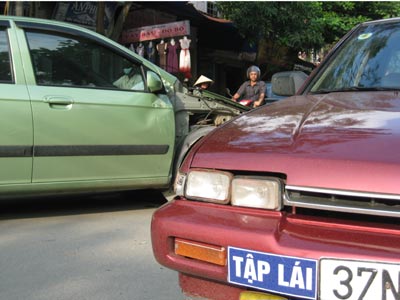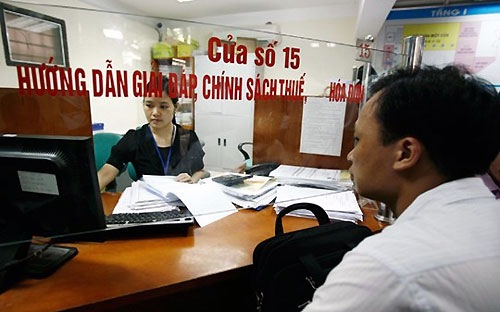According to Clause 2, Article 3 of the Commercial Law 2005, goods include all types of movable property, including future-formed movable property; items attached to the land.
From this regulation, we can fully assert that houses and construction works are considered goods. Therefore, houses and construction works are subject to the adjustments of the Law on Commerce and are the subjects of sale and purchase contracts.
Once houses and construction works are considered goods in commerce, under the current Ordinance on Commercial Arbitration 2003 and the Law on Commercial Arbitration 2010 (effective from January 01, 2011), disputes related to contracts for the sale and purchase of houses and construction works can be resolved through arbitration.
If we acknowledge houses and construction works as goods according to the Law on Commerce 2005, it will lead to an unnecessary discrimination in determining the jurisdiction to settle disputes related to the sale and purchase contracts of houses and construction works.
We provide the following example:
Company C is a foreign-invested enterprise in Vietnam with the function of real estate business. Company C is authorized by the competent state authority to construct, manage, and own a residential complex and a retail commercial area, etc.
During the project implementation, before completing the foundation as stipulated by law, in March 2008, Company C entered into an asset sale and purchase contract with Company X of Singapore to sell the entire Tower 5 (Block 5) with nearly 170 apartments; the office tower and nearly 8,000 m² of the 3rd floor of the retail area. The total contract value exceeded $140 million USD, and the buyer had paid nearly $50 million USD to the seller. The remaining amount was paid according to the actual handover progress.
In the dispute resolution clause, the parties agreed that the arbitrator would be the Singapore International Arbitration Centre (SIAC) and the law applicable to the dispute would be Singaporean law.
Company X was well aware that under Vietnamese law, the sale of apartments can only be carried out once the foundation has been completed; Vietnamese law does not allow foreign organizations to own real estate in Vietnam.
When the real estate market froze, Company X no longer wished to continue the contract and wanted to cancel the contract to get their money back. If the case were to be resolved by SIAC, the enforcement of SIAC’s ruling in Vietnam would be challenging and possibly would not be recognized and enforced in Vietnam due to its violation of Vietnamese law. Specifically, the ruling would violate the exclusive jurisdiction of the Socialist Republic of Vietnam as stipulated in Article 411**[1]** of the Civil Procedure Code and Clause 2, Article 769**[2]** of the Civil Code 2005. As a result, Company X consulted a Vietnamese lawyer for the case to be resolved by the Vietnamese court under Vietnamese law.
Company X’s rationale was that the arbitration agreement was invalid because disputes involving real estate in Vietnam must apply Vietnamese law and fall under the exclusive jurisdiction of Vietnamese courts. Company C argued that the parties agreed to apply Singaporean law and SIAC for dispute resolution, so the legality of the arbitration agreement should be based on Singaporean law, not Vietnamese law.
Here, we do not discuss the applicable law but analyze the following two cases:
Case 1:
If both companies are Vietnamese and chose Vietnamese arbitration for resolution, according to Article 10 of the Ordinance on Commercial Arbitration Vietnam 2003 and Article 18 of the Law on Commercial Arbitration 2010, this agreement would still be legally valid.
Case 2:
If one of the companies is foreign and they also chose Vietnamese arbitration for resolution. In this case, the asset sale and purchase contract between Company C and Company X is considered a civil transaction with foreign elements. Thus, based on Article 411**[3]** of the Civil Procedure Code 2005, this arbitration agreement would be invalid.
The question we raise is why there is this discrepancy? Meanwhile, the dispute resolution agency remains unchanged. Thus, it appears that the law discriminates between domestic and foreign enterprises.
We believe the Commercial Law should limit the concept of "goods" by excluding houses and construction works on land from the notion of goods in commercial law. This would align with Article 14**[4]** of the Law on Commercial Arbitration 2010 and align with the principle of equality among economic elements in the current context of globalization.
Moreover, resolving issues related to houses and construction works on land involves Land Use Rights. In our country, land is owned by the entire people and uniformly managed by the state, so it is reasonable to stipulate that disputes related to houses and construction works on land (real estate) fall under the exclusive jurisdiction of Vietnamese courts, regardless of foreign elements.
Previously, Clause 2, Article 7 of the Ordinance on Commercial Arbitration 2003 stipulated: "For disputes with foreign elements, the Arbitration Council shall apply the law chosen by the parties. The choice of foreign law and the application of foreign law must not contravene the fundamental principles of Vietnamese law."
Goods are one of the fundamental categories of political economy. Narrowly defined, goods are tangible materials with a specific shape that exist in space and can be exchanged and bought. Broadly defined, goods are all things that can be exchanged and bought.
[1] Article 411 of the Civil Procedure Code: “The following foreign-related civil cases fall under the exclusive jurisdiction of the Vietnamese courts:
a) Civil cases related to rights to immovable property within the territory of Vietnam;
……….”
*[2] Clause 2, Article 769 of the Civil Code 2005: “Contracts related to real estate in Vietnam must comply with the law of the Socialist Republic of Vietnam.”
[3] Article 411 of the Civil Procedure Code: “The following foreign-related civil cases fall under the exclusive jurisdiction of the Vietnamese courts:
a) Civil cases related to rights to immovable property within the territory of Vietnam;
……….”
*[4] Article 14 of the Law on Commercial Arbitration 2010: “For disputes with foreign elements, the Arbitration Council shall apply the law chosen by the parties; if the parties have no agreement on the applicable law, the Arbitration Council shall decide to apply the law that the Arbitration Council deems most appropriate.”
Lawyer Phung Thanh Son
Law Firm Viet & Partner
Source: Vietnam Chamber of Commerce and Industry
 Article table of contents
Article table of contents





.Medium.png)
.Medium.png)
.Medium.png)
.Medium.png)
